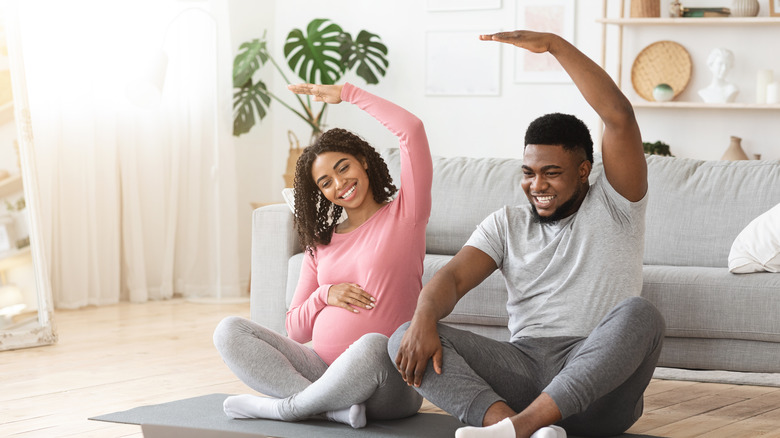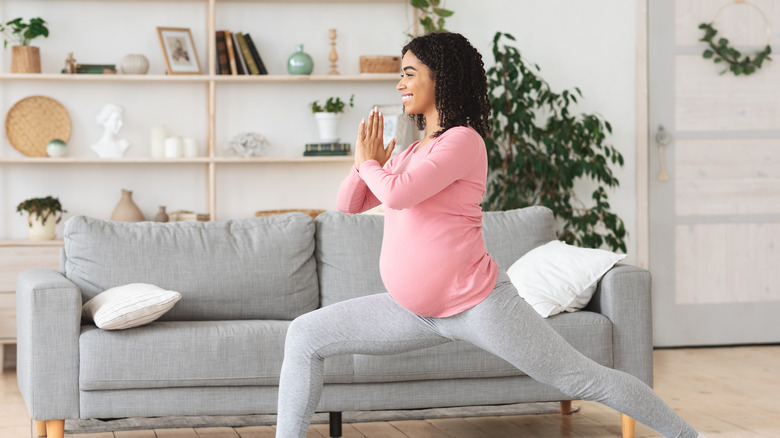What Are The Benefits Of Exercising While Pregnant?
You might consider yourself lucky if you're pregnant and can sit back, relax, and love the growing seed inside of you while others cater to your needs and wishes. Given how the extra pounds and pressure can weigh on you (and your bladder), it's not uncommon to feel more tired and want to give yourself a break before your bundle of joy arrives. But unless you've been instructed by your doctor to take it easy, getting active while you're pregnant is ideal. According to Mayo Clinic, participating in physical activity during pregnancy offers some serious health benefits.
If you're pregnant and experiencing back pain, constipation, bloating, or swelling, exercise can reduce these unwelcome issues. Exercising is also good for boosting your mood and energy and can help you sleep better. Not to mention, it'll help ward off excess weight gain while also toning your muscles and improving your strength and endurance. Mayo Clinic also says that exercising while pregnant can reduce the risk of gestational diabetes, shorten your labor, and minimize the risk of needing a c-section.
Safety measures for exercising while pregnant
Always talk with your doctor before starting any exercise program, and this is especially true if you're with child. According to Mayo Clinic, some health conditions may lead your doctor to advise against exercising. Heart and lung disease, preeclampsia, high blood pressure, issues with the cervix or placenta, carrying multiples, severe anemia, and vaginal bleeding during the second or third trimester are all reasons why exercising may not be safe.
Once you have the clear from your doctor to exercise during your pregnancy, start with 10 minutes a day and then work your way up to 30 minutes by increments of 5 minutes. Walking is always ideal and other moderate aerobic activities like swimming or cycling on a stationary bike are relatively safe and beneficial too. In terms of strength training, you can safely incorporate light weights into your workouts. The general rule of thumb is to be able to carry on a conversation while you work out. If you can't, you're doing too much and need to slow down.


